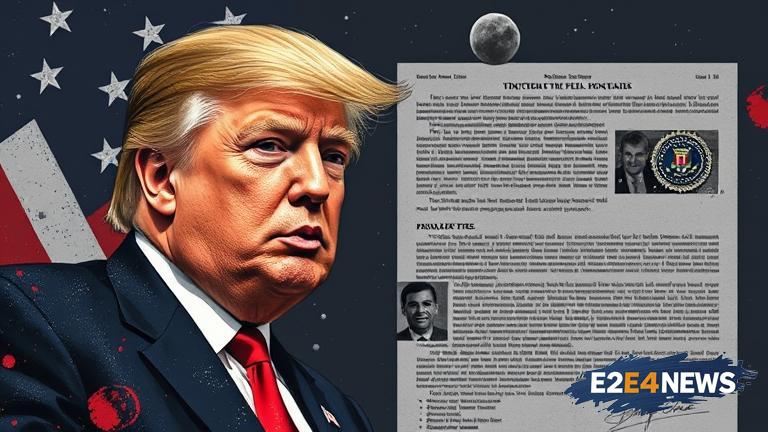The declassified files, which were previously sealed until 2027, reveal the extent of the FBI’s surveillance on King and other civil rights leaders. The documents show that the FBI had been monitoring King’s activities since the 1950s, and had gathered extensive information on his personal life, including his relationships and financial dealings. The files also reveal that the FBI had attempted to discredit King and other civil rights leaders through various means, including spreading rumors and misinformation. The release of the files has been met with mixed reactions, with some praising the transparency and others criticizing the timing and potential motivations behind the release. The files are part of a larger collection of documents related to the assassination of President John F. Kennedy, which were ordered to be released by President Trump. The release of the files has sparked renewed interest in the life and legacy of Martin Luther King Jr., and has raised questions about the role of the FBI during the Civil Rights Movement. The documents also provide insight into the FBI’s activities during the 1960s, including their surveillance of other civil rights leaders such as Malcolm X and Stokely Carmichael. The release of the files has been seen as a significant development in the study of American history, and has been welcomed by historians and researchers. However, some have raised concerns about the potential impact of the release on the privacy and reputations of individuals mentioned in the files. The FBI’s surveillance of King and other civil rights leaders has been widely criticized as an abuse of power and a violation of their civil rights. The release of the files has also sparked debate about the legacy of J. Edgar Hoover, the former director of the FBI who oversaw the surveillance program. The documents reveal that Hoover had a personal vendetta against King, and had ordered his agents to gather dirt on the civil rights leader. The release of the files has been seen as a major development in the ongoing struggle for transparency and accountability in government. The files are expected to be the subject of extensive study and analysis in the coming months and years, and are likely to shed new light on one of the most tumultuous periods in American history. The release of the files has also raised questions about the role of the FBI in modern American society, and has sparked calls for greater oversight and accountability of the agency. The documents are a significant addition to the historical record, and provide a unique glimpse into the inner workings of the FBI during the 1960s. The release of the files is a reminder of the importance of transparency and accountability in government, and the need for ongoing vigilance in the protection of civil rights and liberties.
